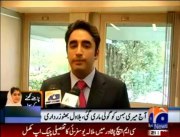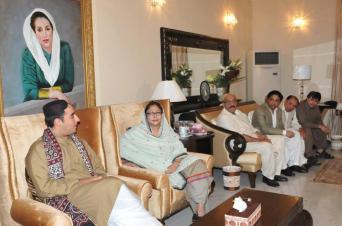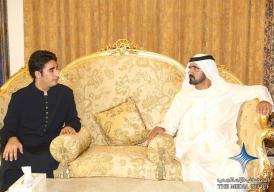Politics demands more politicians to take care of their people rather standing for the personal gains & privileges but since Pakistan’s date of inception & from there on, the noble & the laureate profession of politics stands in shambles, today the politics in Pakistan has become messy & murky not just because of the politicians but also because of the vested interests of various corporations, media outlets, bureaucracy, non-governmental organizations, the black money market, elite groupings, last but not the least, the landlords and the industrialists. Though a large number of Pakistani politicians are either land lords or industrialists and those who do not fall under these two categories, they usually toe a popular policy which is to double their assets and to less talk and care about their people who vote them.
Though the role of money in politics has been there in every society but in Pakistan it is more than needed and strengthening its roots further, In Pakistan it’s money which has been a symbol of political status, the more money you have, the more bigger leader you are or you have the chances to be. It’s the money which determines your status in political party but not the association or your loyalty but this case is limited to the right wing political parties because the left doesn’t exist anymore, once those were leftist political parties, they have altered their image into a half boiled egg, they are in a confused state, they are in a state of trauma but this situation and this state of mind exists also on the other side i.e. among the right wing political parties, because in Pakistan both the right and the left have become cartels of the elite class, the cartels of industrialists and the landlords, and this is the result of money introduced in politics by scandals like Midnight jackal and Mehran Bank that today Pakistani politics merely stand in a muddle.
But it’s not only these political parties which are in a state of confusion but entire society is going through a state of conflict within conflict, it’s in a static state, in a paranoid state where neither a Mulla knows what he was taught for and what he has to impart, nor a leader knows what his duty is and whom he has to lead, The citizens don’t know what their rights are? In factories, the working class, the laborers are being forcefully taken 12 hours duty, but who care no one and even these laborers who once used to agitate, they are going through worst situations in factories but are reluctant to stand for their rights. Moreover we are in a society where a military action has been going on against terrorists in FATA and another operations going on in rest of Pakistan and that operation is against minorities and its intensity says it’s a “Operation Minorities cleanup” because in Pakistan, it’s mobs and the majority which decides everything, but not the mobs and majority of the working class but the majority of the ruling elite. The majority of the working class gets suppressed whenever it comes out in a form of mob and MRD movement, 12th May carnage are few instances of such mobs, where working class was brutally suppressed when they came out to demand their rights.
But who has to bring us out of this state of mind? Obviously the leaders, the political parties but how? When they themselves are in a state of confusion, the genuine class and the genuine political party is talking about saving the system and saving an engineered party which was constructed in 1988 to oust genuine class from parliament, and another engineered political party is standing against an engineered party. This has been the real tragedy with Pakistan that the right wing is opposing the right wing and the left wing is standing to rescue the right wing, absolutely wrong class is taking right things but the absolute right class is reluctant to accept the right things and wants to stable a system, which doesn’t have remedy to the problems of common class.
Another tragedy with Pakistan’s political system is that it’s hardly 15% Pakistanis who are staging protests against an elected government and rest of 85% Pakistanis are silent majority, though they are living in miserable conditions, they are being persecuted, they are being mentally tortured, their rights have been snatched, their lives are worse than those in Rwanda and Ethiopia but still they are reluctant to come out, the way they come out in 1968/69 but why? Because in this 85% a large majority is the working class and the working class hardly denounce their allegiance and their loyalty, they are still waiting for their party to wake up, their party. the party of commoners, the party of laborers, the party of peasants and the party of downtrodden class has to realize now that their workers are not their strength, their landlords, their personal friends are not their strength it’s the awaam, the common Pakistanis who are their strength and who bring them into rule, it’s the time for all the political parties to break the statuesque exist within and to bring the common classes on forefront so the static situation of society could be blown up, because the political activism at the bottom is the only way out to get Pakistan towards the road of progress & prosperity. Otherwise sooner or later we will lose this democracy because the democracy in elite class is not the democracy, the democracy has to be shared among the commoners, who are the movers and shakers of the economy, the system and the parliament.
Let’s hope Pakistani intelligentsia, the political brass, the policy makers and the political parties will soon realize the gravity of inertia, today exists in our society, which is a breeding ground for many conflicts, and which is a breeding ground for further dividing society into various factions, now it’s the duty of Pakistani leaders and the political parties to break this existing inertia by bringing political activism in the working class of Pakistan and Pakistan Peoples Party is the only force in the country which can unite the working class, the laborers under its flag as it previously did in 1968/69’s revolution, because Pakistan’s electorate begging for a leadership which could unite all the factions of society and this is the test of each and every Pakistani leader because a leader is the one who forms a nation out of factions, by uniting them all under one flag. Let’s hope for the dawn which was promised.
Malik Zameer Hassan Awan.
Zameer0201@hotmail.com
Twitter: @ComradePk


 The author is the Senior Program Associate for South Asia at the Woodrow Wilson International Center for Scholars in Washington, DC. You can reach him at michael.kugelman@wilsoncenter.org
The author is the Senior Program Associate for South Asia at the Woodrow Wilson International Center for Scholars in Washington, DC. You can reach him at michael.kugelman@wilsoncenter.org


